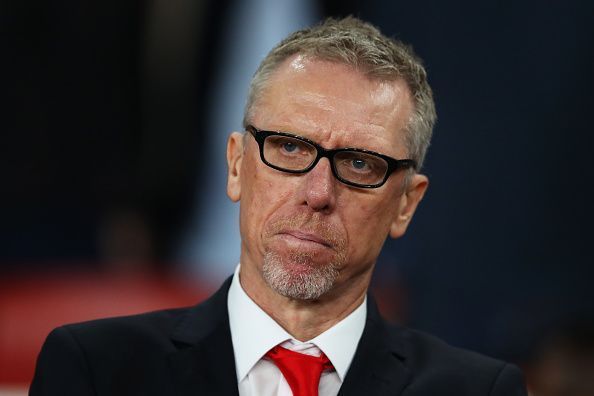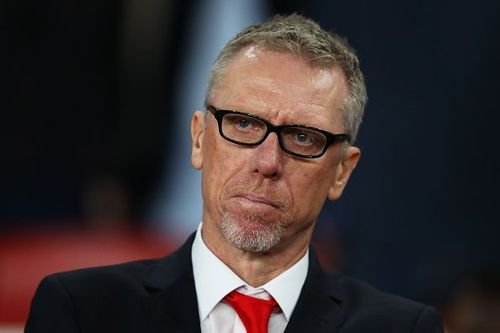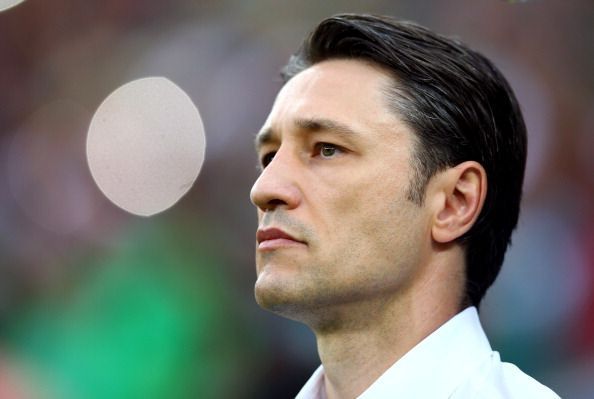
Has the Bundesliga become boring?

A few years back, the Bundesliga was renowned for being an attacking league where goals were never in short supply. We used to see rather insane results- 7-1, 7-0, 8-1, 8-2 and so on- and while this might still happen, there seems to force in motion that could stop these from happening on a regular basis.
If you've watched any of the recent Bundesliga seasons, you know that defensive football has been getting some focus. Many managers now focus on defending rather than attacking and this seems to have changed the identity of teams. But how come? How come defensive football has become the way of the Bundesliga?
Two weeks ago, former Borussia Dortmund midfield maestro Ilkay Gündogan stated that Bundesliga has become too defensive and that the Premier League is more balanced. Gündogan said that many Bundesliga teams focus on safety. He further said that too little happens in games in the German top division. If you also look at history, you might realise that Bundesliga always has been a goal-frenzy league.
According to Kicker.de, in the first Bundesliga season, 1963/1964, Preussen Münster mustered just 34 goals. Köln, who won the title, had the best defence with 36 goals conceded. Ten years later, in 1973/1974 when Bayern Munich were at the height of their ability, the team with least goals scored were Duisburg and Wuppertaler SV with 42 each.
The best team defensively was Fortuna Düsseldorf with 47 goals conceded. In the 1983/1984, when VfB Stuttgart romped to the title, Kickers Offenbach managed to concede 106 goals in one season. This was one of the worst defensive displays in modern German football. FC Nürnberg scored 38 goals, the least, and were relegated. Bayern Munich were the best team offensively with 84 goals to their name, but finished in fourth place.
If we skip ahead to the 2013/14 season, TSG Hoffenheim conceded 70 goals. However, they did also manage to score 72 goals in the same season. Bayern Munich conceded the least goals, 23, while Eintracht Braunschweig scored the least, 29. So far this season, only two teams have conceded more than 40 goals which makes this season statistically more defensive than the last few.
It could very well be about the managers. In Bundesliga, pressing has been a big deal for a long time. However, many of the managers who adopt a proactive approach have moved on. Jurgen Klopp is at Liverpool, Roger Schmidt was sacked by Bayer Leverkusen and Thomas Tuchel badgered his way out of Borussia Dortmund. Instead, we see a resurgence in more tactically astute managers. Coaches who like to minimise risks. With the likes of Julian Nagelsmann, Domenico Tedesco, Niko Kovac and Peter Stöger at top Bundesliga clubs, we now see a more defensive approach being chosen among these teams.
Also read: Bundesliga Matchday 24 Round-Up: Bayern Drop Points, Cologne Stay In The Survival Race And More
The goal-grazed Bundesliga many grew up with seems to be fading and while we still get to see some crazy games once in a while, that seems to be the exception to the rule. In many ways, the story of Eintracht Frankfurt might be the story of the Bundesliga. Eintracht Frankfurt were for many years a club that guaranteed entertainment.
They were called 'die Launische Diva vom Main', or the 'Moody Diva from Main', due to their flamboyance and their frustrating, albeit entertaining tendency to beat big clubs, while then going on to lose against the minnows.

This was their way and it was fun to watch. This continued throughout the 2000s and 2010s. Even though this institutional instability was a big factor in them getting relegated from Bundesliga in 2012, they were still an entertaining outfit, albeit not that successful. While coach Armin Veh was more defensively orientated than his predecessors, he was in no way a defensive giant and this attacking focus was added when he left the club in 2014 and was replaced by Thomas Schaaf, the old Bremen coach who had made crazy results his expertise.
Under Schaaf, Eintracht didn't do too well, but managed to score bags of goals, thereby, allowing Alexander Meier to win the "Torjägerkanone" in 2015. But Eintracht's most successful era during the 2000s has come under the tutelage of a more defensive coach, Niko Kovac. Eintracht has, much like many other German outfits, reverted to a more defensive approach.
Borussia Dortmund are another excellent example of when a coach changes the ideology of a whole football club. It has happened on a few occasions at BVB, first with Klopp who moulded the black and yellow to a gegenpressing monster. Then, Peter Stöger came along and brought his defensive strategy with him from Cologne following the sacking of Peter Bosz.
The appointment of Stöger at Borussia Dortmund has tamed one of the wildest tigers in the jungle, and while it'll still attack when provoked, it's a real rarity. Defensively, however, they have grown. Since Stöger took over, they've earned more clean sheets than they did under Bosz and are defending well against tougher opposition. Dortmund is a great example of another attacking and entertaining team choosing defence before attack, and the reason is a defensive coach.
Perhaps it might have something to do with the Bavarian dominance in Bundesliga. When a team dominates as much as Bayern have done for the last five years, teams are bound to find new ways to react. Defence before attack might, alas, have been a shift in approach for many underperforming giants in German football. Borussia Dortmund are now reverting to a more defensive approach, perhaps it's due to the appointment of Stöger, but maybe it's because they've seen that Bayern's defence wins them titles.
Some consider this defensive approach to be the right way forward in regard to success, but not in regard to entertainment. German football has been flamboyant and total for as long as many can remember. The ability and will to not stop at 5-0 and to just keep on going, no matter what, has moulded the German football society into a fearsome one. This culture might be on the verge of dying out. But German football will benefit from a more defensive approach on the world stage.
Defensive football will always be the way forward if the goal is success. Producing clean sheets as a cheap-line article must be seen as a more productive way of earning points than scoring bags of goals. This is why German football will benefit from shifting their focus to a more defensive one, even though it might harm the actual German football culture that we've all grown to love and adore.
This last weekend was a great example of hos defensive the Bundesliga can be. Results like 1-1, 0-1, 1-0 and 0-0 were the story of the weekend. Maybe that was a monument of things to come, something showing us what can be expected from the future. Might a defensive Bundesliga be the way forward? Or is just this season a product of defensive managers? The future will tell, as it often does.